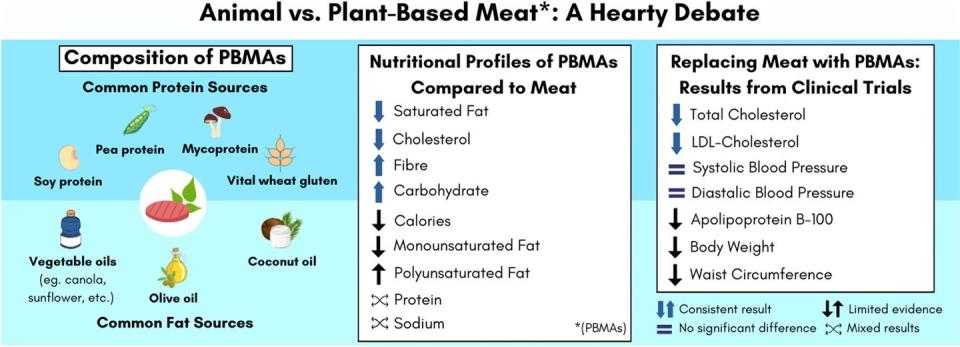New Scientific Review Reveals That Vegan Meat Alternatives Lower Cardiovascular Risks

With new scientific studies being released daily, it's no surprise that you may find conflicting views on various topics, sometimes seemingly within the same year. It can be confusing to navigate, especially when it comes to nutrition. Social media can also be a perfect example of the repercussions of this, with a strong divide recently forming between meat enthusiasts and those choosing a vegan lifestyle.
Amidst this new trend, something that has come under recent scrutiny are plant based meat alternatives such as vegan burgers. Thankfully, we were able to speak to the lead researcher of a large scale review, investigating the effects of plant based meat alternatives on our health.
The Review
Published in the Canadian Journal of Cardiology, the review conducted by Dr. Matthew Nagra investigated the cardiovascular health implications of plant based meat alternatives compared to animal based meat.
Speaking to Dr. Nagra on his motivations behind the narrative review, he shared: 'This research is important because the plant based meat market has experienced tremendous growth over the past decade. Right alongside recommendations to reduce meat intake, particularly red meat. So we need to know how these products affect our health.'
'If someone chooses a plant based burger over a beef burger, are they lowering the risk of cardiovascular disease? Are they increasing the risk or does it stay relatively neutral? These are important questions to answer,' says Dr. Nagra. Not only have we been recommended to reduce red meat consumption, but also 'ultra-processed foods'.
The narrative review notes that this also prompted the need to investigate the long term health implications of plant based meat alternatives.
The Results

By assessing the available literature, the review found that when compared to meat, plant based meat alternatives were:
Usually lower in saturated fat
Higher in polyunsaturated fat
Higher in dietary fibre
Which are all nutritional components which can support cardiovascular health. The review also found that some dietary trials that have replaced meat with plant based meat alternatives have reported improvements in cardiovascular disease risk factors, including multiple factors such as reductions in cholesterol and body weight.
The review also found that no available evidence suggests that the concerning aspects of plant based meat alternatives like the food processing or the sodium content negate the potential cardiovascular benefits.
The researchers concluded that replacing meat with plant based meat alternatives may be cardioprotective. However, more studies are needed.
'The reality is that many people aren't going to choose a bowl of lentils over a steak,' says Dr. Nagra. 'But if these plant based alternatives that are designed to mimic the taste, texture and even the look of the meat can also lower our cardiovascular disease risk, then we can recommend that swap to people who otherwise wouldn't choose the plant based option.'
Do We Need to Be Worried about Ultra-processed Foods?
'While it is true that research has shown that those consuming the most ultra-processed foods are at higher risk of cardiovascular disease, type two diabetes and other chronic illnesses,' says Dr. Nagra, 'more recent research has demonstrated that it's actually not all ultra-processed foods that are to blame.

'Ultra-processed foods are a very broad category encompassing hot dogs, Coca-Cola, whole wheat bread, breakfast cereals, protein powders and many more. And these foods can affect our health in very different ways. For example, sugar-sweetened beverages like sodas and processed meats like sausages are consistently associated with a higher risk of a number of chronic diseases. While whole wheat bread actually seems to lower our risk being healthier. So, it isn't clear where plant based meat alternatives fit on that spectrum. And that's a part of what we're trying to determine.'
Dr. Nagra also noted that adding nutrients to a food can also contribute to its classification as being 'processed'. For example, plant based milks often have added calcium and vitamin B12 and vitamin D. Plant based meats often have added vitamin B12 amongst other nutrients as well. And so, in these cases, the added ingredients actually make it a better product, a more nutritious product and are not necessarily something to shy away from.
Could This Research Encourage Steps to Improve Climate Change?
According to Dr. Nagra, 'numerous analyses, including the largest study of its kind out of Oxford University, including data from over 38,000 farms, have suggested that choosing plant protein sources over animal foods can lower one's environmental footprint. With red meat being amongst the worst offenders in terms of greenhouse gas emissions and land use. So, swapping out red meat for plant based meat alternatives is certainly a step in the right direction for the environment.'
You Might Also Like


